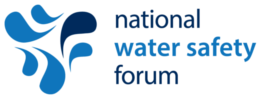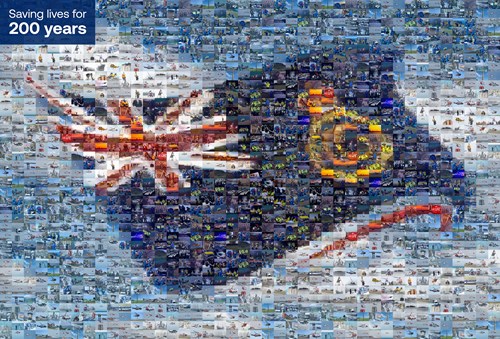11/05/2022
NWSF Newsletter - May 2022
Message from the Chair
As I write this message, the first of our annual calendar of water safety campaigns for 2022 has just taken place Calendar | National Water Safety Forum.
The National Fire Chief’s Council has been running the #BeWaterAware campaign for several years now. Fire and Rescue Services around the UK, together with partners held events and shared water safety messages. The toolkit is available to download here all year with free to use resources.
You will also see from the calendar that the Royal Life Saving Society’s annual Drowning Prevention Week awareness campaign occurs in June. Also the second World Drowning Prevention Day looms on 25th July. I am very much looking forward to seeing what our members and all water safety advocates are planning to highlight water safety, including the mental health and physical benefits of enjoying the water safely.
Colleagues in the NWSF have been busy and we have some exciting news (below) about the appointment of a marketing company to help us promote #RespectTheWater as our overarching branding and water safety campaign. Water Safety Scotland recently held a symposium to highlight the works and initiatives in Scotland, and Water Safety Wales are continuing with their work, including supporting the second petition hearing we mentioned in the last newsletter.
Talking of public petitions, I was very proud to be invited as a guest to the Houses of Parliament by Rebecca Ramsey who was declared the winner of the petitioner of the year for her campaign to secure a class based lesson on water safety in schools. Discussions about this are ongoing with the Department of Education, but I know I speak for all members of NWSF when I congratulate Beckie for her tireless work on water safety through her campaign #DoingItForDylan and for her prestigious award.
This year’s data release is now published and the work on our WAID2 project continues. I am looking forward to the forthcoming demonstration of our new system, which will provide more dynamic information and a more accessible platform about water incidents and risks. This work is of vital importance to us all, as good quality data will help us target and shape of work to reduce risk and save more lives.
Finally, can I thank you all in advance for the support you will give to #RespectTheWater and our various campaigns this year – the only way to promote safety in water is through united messaging and collaboration.
Until next time
Dawn Whittaker
Chair of NWSF
2021 WAID Release
Public urged to take care near water as latest statistics show accidental drowning deaths increased again last year, with more dying inland than around the coast.
- There were 277 deaths in UK from accidental drownings in 2021 across inland and coastal locations. This is an increase of 23 from the previous year.
- The accidental drownings form part of the total water-related fatalities in the UK – for 2021 this was 616, a decrease of 15 from the previous year.
Respect The Water
The National Water Safety Forum has appointed krow, part of The MISSION Group, to oversee the strategy, creative ideation and activation of its Respect the Water (RTW) initiative.
John Quarrey, CEO of krow Group, commented: “We’re thrilled about being appointed by the NWSF, and excited about working with the team to create new, disruptive ways of speaking to our audience to help save lives.”
krow secured the campaign in a competitive pitch run directly by the National Water Safety Forum (NWSF).
David Walker, Head of Road and Leisure at RoSPA, said: “We are incredibly excited to work with krow Group on what will be a new phase for RTW and drowning prevention in the UK.”
Tragically, on average, around 400 people drown in the UK every year; because of this, one of NWSF’s principal aims is to reduce accidental drowning fatalities in the UK by 50% by 2026. Current drowning figures show a clear gender divide, with men accounting for the vast majority of those who die. Therefore the campaign is primarily aimed at men, but the safety advice is just as relevant for anyone who finds themselves in difficulty in open water, both at the coast or inland.
The RTW campaign was first established by the Royal National Lifeboat Institution (RNLI) and has now grown into a national brand for water safety and drowning prevention campaigns through the NWSF, bringing together all strands of water safety across the UK, in a bid to help reduce the number of accidental drownings.
Drowning Prevention Week (18 – 25 June)
Drowning Prevention Week is just around the corner and we must continue to roll up our sleeves to address the current upward trend of accidental drowning in the UK.
In a recent RLSS UK survey we found that around two-thirds of UK adults have never had any formal training or education in water safety. Drowning Prevention Week (DPW) is the next opportunity to engage our communities in effective water safety advice.
All of the information for this years’ campaign can be found at https://www.rlss.org.uk/Pages/Category/drowning-prevention-week-campaign
There are posters and social media graphics available in both English and Welsh, plus a range of materials to help positively engage communities in water safety training. NEW animation that will help young children understand how to go from being fearful of the water to being water proficient is coming soon.
Here’s a reminder of how you can get involved:
- Get Digital - digitally sharing the messages about the water safety code. Use your social media and other digital channels to positively engage your community.
- Run Drowning Prevention Week activities - do you have connections with community leisure centres, pool, swim schools or clubs? Guides are available to run water safety training during water based activities.
- Lobby for education in schools - this year, following expansive work with a variety of water safety partners, in addition to usual education materials - thematic lessons are now available for those aged 5 -11, supplementing our existing variety of school resources across the age groups. Can you share with or deliver education in schools?
Beckie Ramsay - petition of the year
Congratulations to North West Water Safety petitioner Beckie Ramsay who won the Petition Campaign of the Year Award at the Your UK Parliament Awards in an event held in the Speaker’s State Rooms in the Palace of Westminster. This recognition follows her campaigning on the issue of water safety.
Beckie, from Preston, started the petition to “increase curriculum content about water safety as part of swimming lessons” after her son Dylan drowned in 2011 following difficulty while swimming in a disused quarry with friends. The petition received more than 108,000 signatures.
Since Dylan’s death, Beckie has worked with the police and sector bodies such as the National Water Safety Forum and the Royal National Lifeboat Institution to raise awareness of the risks of open water. She has also spoken about water safety to over 180,000 children in schools, and was awarded a British Empire Medal (BEM) in 2019 for ‘services to the Prevention of Water Related Accidents’.
Through tireless campaigning in the eleven years since the tragic death of her beloved son Dylan, Beckie has educated hundreds of thousands of young people about the dangers of open water. She has built support from across the water safety sector for changes to our education system which could save other families from suffering similar tragedy.
Events/opportunities:
- Current Vacancies – NWSF Marketing and Communications Specialist
- July 25 is World Drowning Prevention Day. This annual global advocacy event, declared by UN General Assembly Resolution, serves to highlight the tragic and profound impact of drowning on families and communities and offer life-saving solutions to prevent it. An estimated 236,000 people drown every year, and drowning is among the ten leading causes of death for children aged 5-14 years. More than 90% of drowning deaths occur in rivers, lakes, wells, domestic water storage vessels and swimming pools in low- and middle-income countries, with children and adolescents in rural areas disproportionately affected.
Read More >

